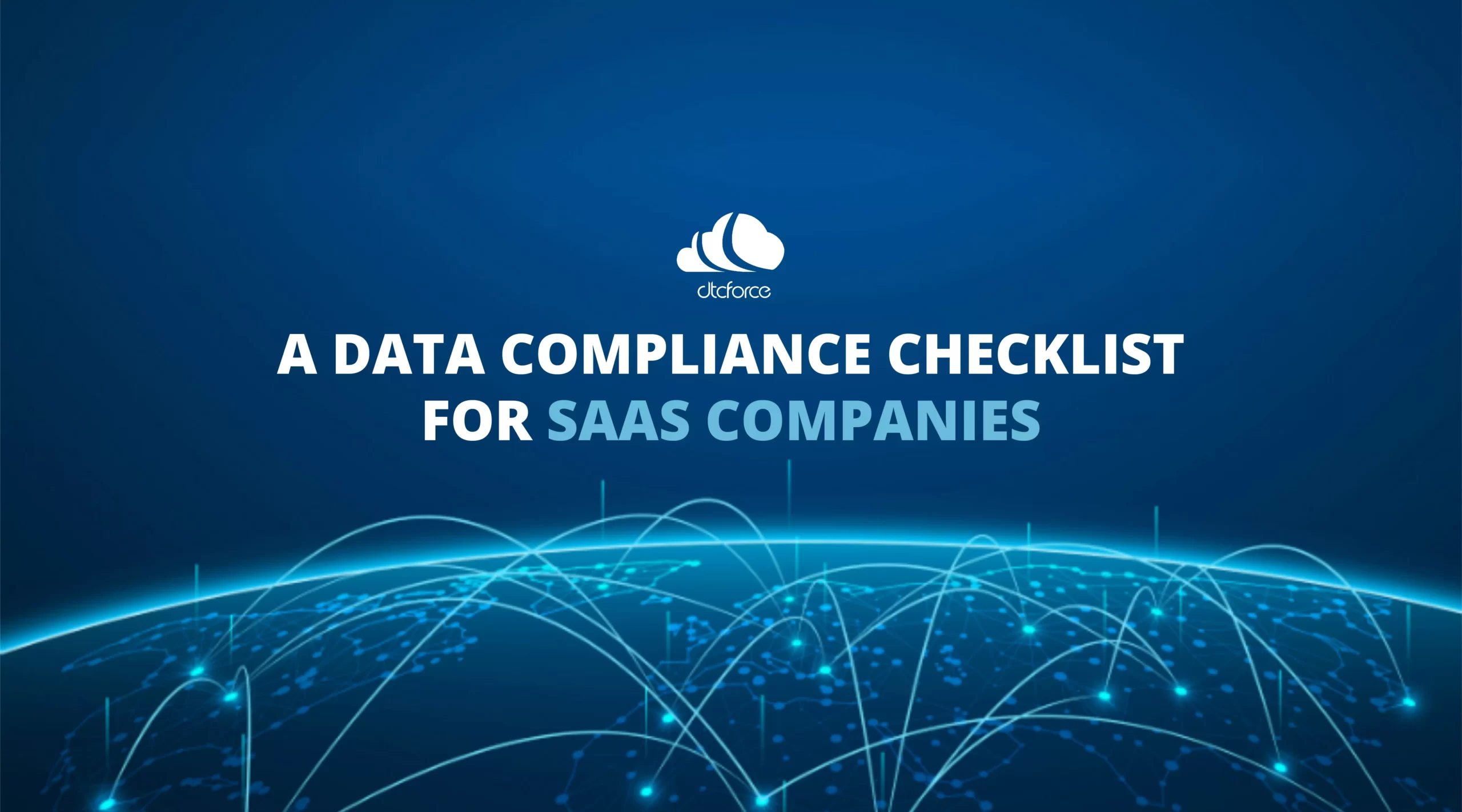Contents
- What is Data compliance for SaaS companies?
- What is GDPR compliance in software?
- Why is data compliance important for SaaS companies?
- A SAAS startup checklist when planning data residency.
- Conclusion
What is Data compliance for SaaS companies?
Data compliance refers to the measures that a company takes to ensure that it is handling data in a legal and ethical manner. This includes complying with laws and regulations that govern how data can be collected, used, and stored, as well as following internal policies and procedures related to data management.
Data compliance is important for companies because it helps to protect the privacy and security of individuals whose data is being collected and processed. It also helps to build trust with customers and clients, as they are more likely to trust companies that handle their data responsibly.
There are many laws and regulations that govern data compliance, including the General Data Protection Regulation (GDPR) in the European Union and the California Consumer Privacy Act (CCPA) in the United States. Companies must ensure that they are in compliance with these laws and regulations in order to avoid legal penalties and protect the data of their customers and clients.
In addition to legal requirements, data compliance also includes following internal policies and procedures related to data management. This may include implementing security measures to protect data from unauthorized access or the breach, training employees on data handling practices, and conducting regular audits to ensure that data is being handled properly.
What is GDPR compliance in software?
The General Data Protection Regulation (GDPR) is a comprehensive data protection law that was adopted by the European Union (EU) in 2016. It applies to any company that processes the personal data of individuals who are in the EU, regardless of the company’s location.
GDPR compliance in software refers to the measures that a software company takes to ensure that it is in compliance with the GDPR when it collects, uses, and stores the personal data of individuals in the EU. Some of the key requirements of the GDPR for software companies include:
- Obtaining explicit consent from individuals before collecting their personal data.
- Providing clear and concise information about how the personal data will be used.
- Ensuring that personal data is collected and processed only for legitimate purposes.
- Implementing appropriate technical and organizational measures to protect personal data from unauthorized access, use, or disclosure.
- Providing individuals with the right to access, rectify, erase, or restrict the processing of their personal data.
- Reporting data breaches to the relevant authorities and affected individuals.
Why is data compliance important for SaaS companies?
Data compliance is important for any company that collects, uses, or stores the personal data of individuals, regardless of the industry in which the company operates. This includes companies in industries such as healthcare, financial services, retail, and technology, as well as companies that offer online services, such as software as a service (SaaS) companies.
In particular, companies that handle sensitive personal data, such as financial information, healthcare information, and personal identification information, should prioritize data compliance services. These companies are at a higher risk of data breaches and may face more severe consequences if they fail to protect this data.
Data compliance is important for SaaS (Software as a Service) companies because it helps to ensure that the company is handling customer data in a legal and ethical manner. This is particularly important for SaaS companies because they often handle sensitive data, such as personal information, financial information, and healthcare information.
There are several laws and regulations that govern how companies can collect, use, and store data, such as the General Data Protection Regulation (GDPR) in the European Union and the California Consumer Privacy Act (CCPA) in the United States. SaaS companies must ensure that they are in compliance with these laws and regulations in order to protect their customers’ data and avoid legal penalties.
In addition to legal requirements, data compliance is important for SaaS companies because it helps to build trust with their customers. Customers are more likely to trust companies that handle their data responsibly, and this trust can lead to increased customer loyalty and higher retention rates.
A SAAS startup checklist when planning data residency.
- Determine which countries your company’s data needs to reside in: Different countries have different laws and regulations regarding data storage and processing. You’ll need to determine which countries your company’s data needs to reside in based on the requirements of your customers and the laws of the countries you operate in.
- Consider data protection laws and regulations: Different countries have different laws and regulations regarding data protection and privacy. You’ll need to ensure that your company is compliant with these laws and regulations, regardless of where your data is stored.
- Choose a data center or hosting provider that meets your data residency requirements: Once you know which countries your data needs to reside in, you’ll need to find a data center or hosting provider that can meet these requirements. This may require working with multiple providers in different locations.
- Understand the limitations of data storage and processing in different countries: Some countries may have limitations on what types of data can be stored or processed within their borders. It’s important to understand these limitations so that you can ensure that your company is compliant with local laws and regulations.
- Consider the impact on data transfer: Depending on where your data is stored and processed, there may be limitations on the ability to transfer data between countries. This can impact the way that your company does business, so it’s important to understand any potential limitations.
- Review your contracts and policies: Make sure that your contracts and policies are updated to reflect your company’s data residency requirements. This includes contracts with customers, vendors, and partners, as well as internal policies and procedures.
- Monitor and update as needed: Data residency requirements can change over time, so it’s important to keep an eye on any updates and make sure that your company is compliant.
Conclusion
Overall, data compliance is important for SaaS companies because it helps to protect the privacy and security of their customer’s data, and it helps to build trust and strengthen relationships with customers.








